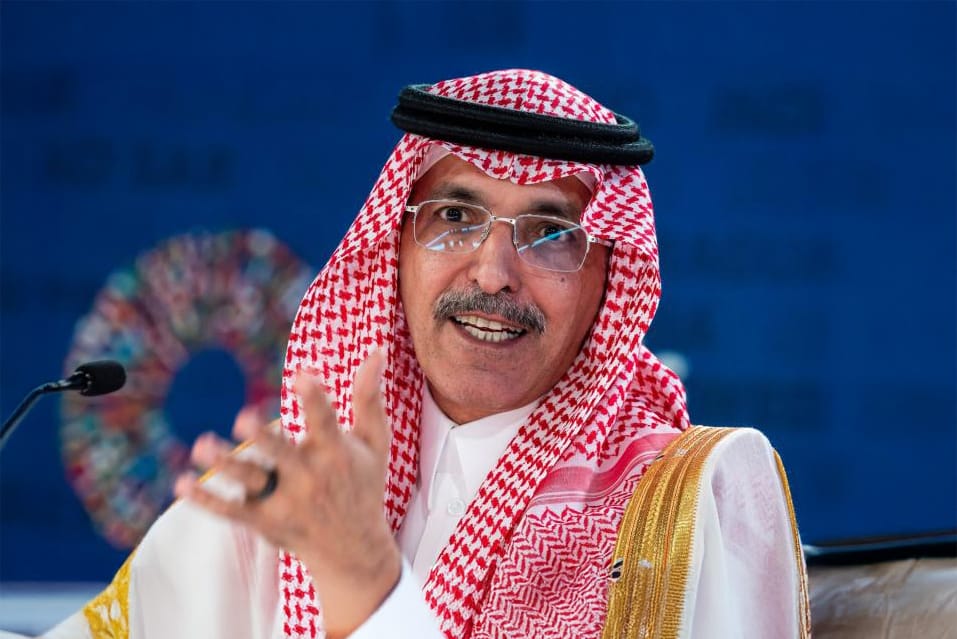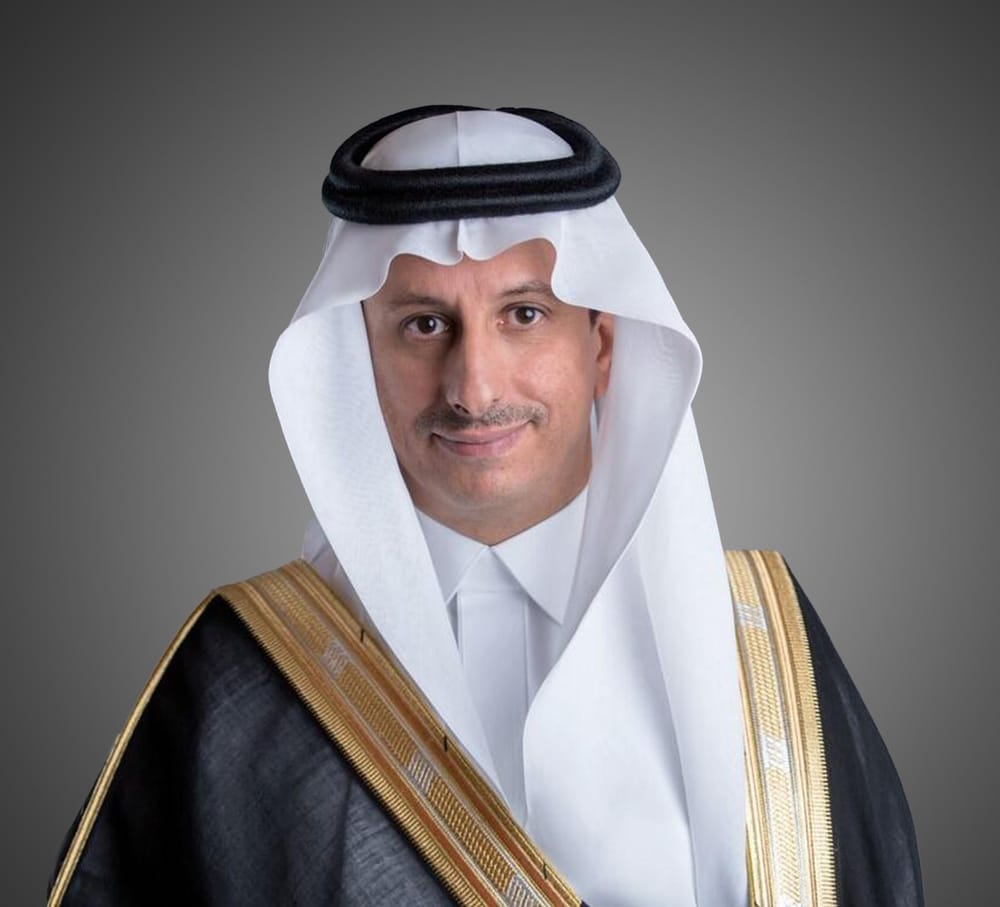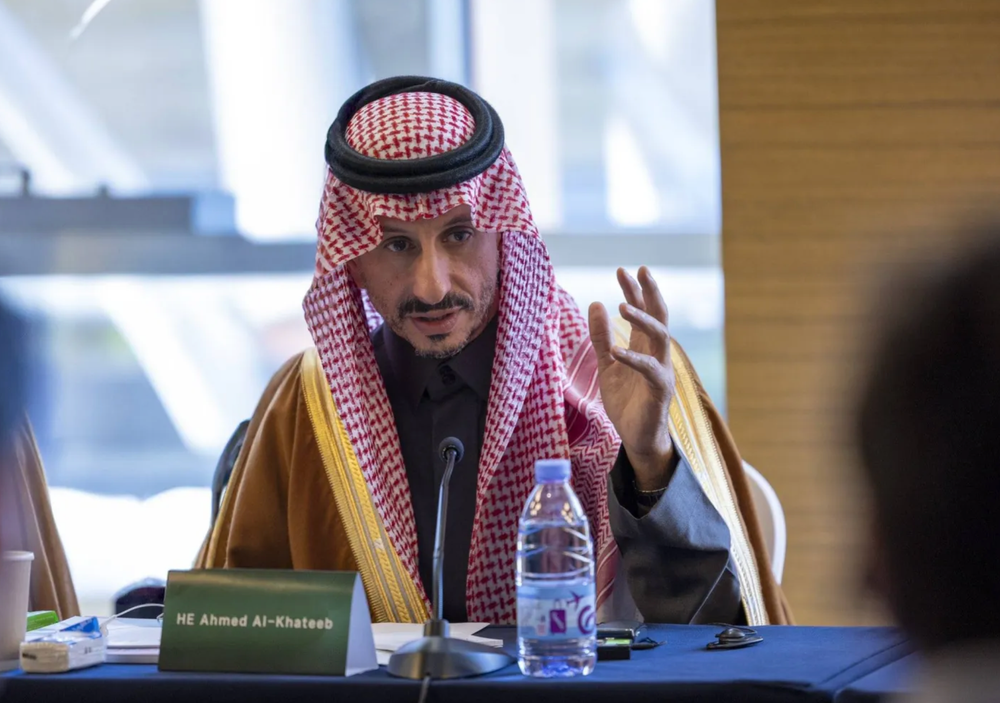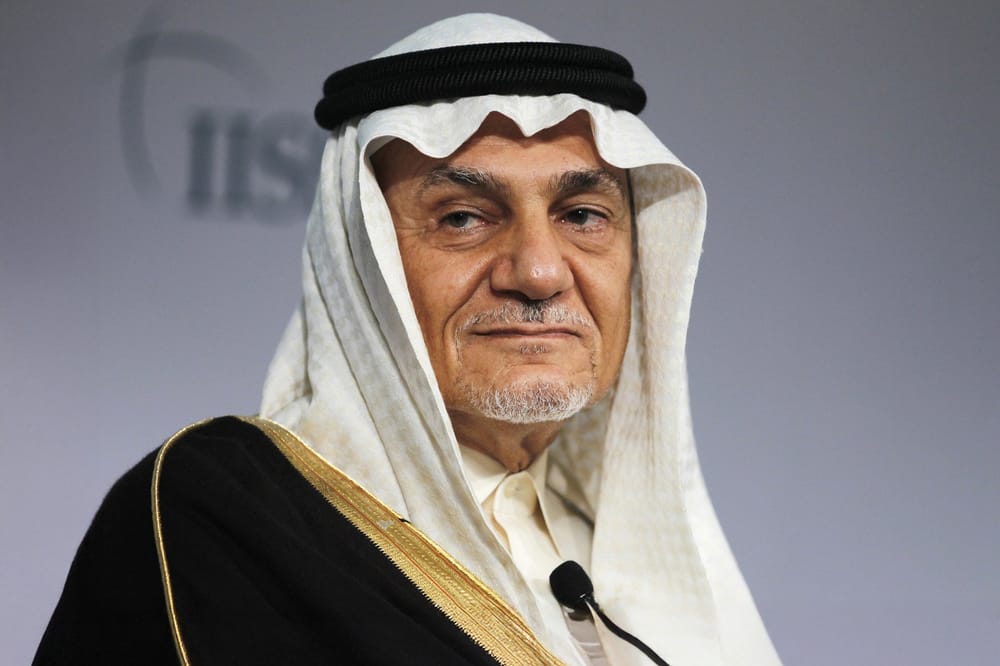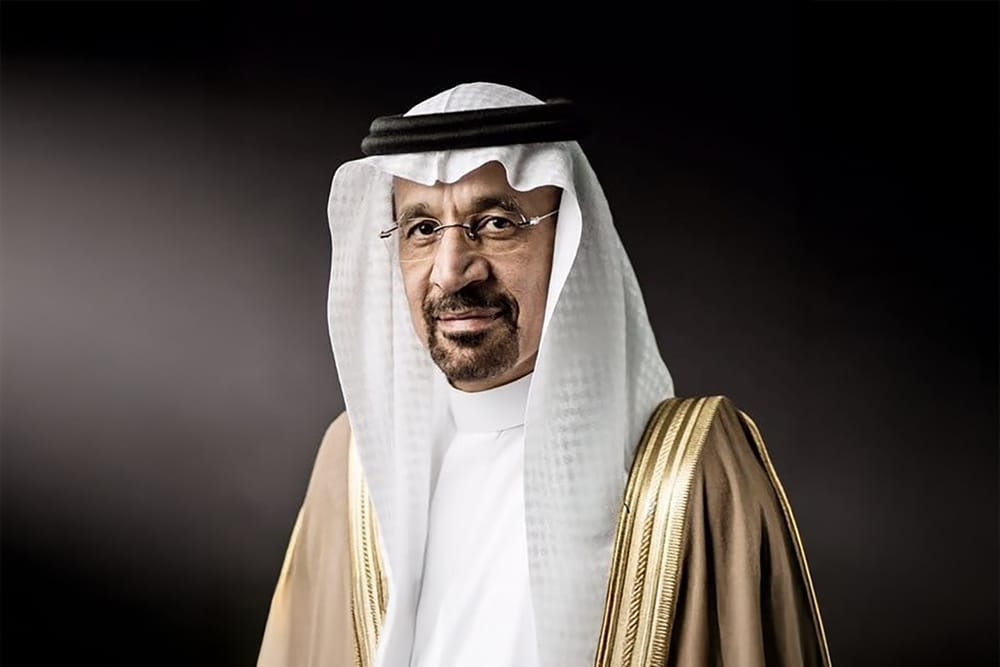Imagine you and I are sitting across from each other, having a cup of gahwa, and we start talking about what it takes to lead at the ministerial level in Saudi Arabia. Let’s explore together the journey of H.E. Mohammed Aljadaan—someone who set aside personal plans to help steer our nation’s financial future—and see what wisdom his experience offers to any young Saudi with ministerial aspirations.
1. When Duty Calls, Be Ready to Change Course
Think back to 2014: H.E. Aljadaan intended to ease into semi-retirement after a successful law career. Then the phone rang: could he lead the Capital Market Authority? He hesitated at first—understandably so—but soon realized there is “no greater honor than serving the country.”
- Life Isn’t Always a Straight Line: You may have a vision for your career, but when an opportunity to serve arises, consider setting aside your plans.
- Patriotism Over Personal Comfort: Remember that stepping into public service can be the pivot point between a comfortable life and meaningful impact.
2. Believe in Big Dreams—and Learn Their Every Detail
When he joined the CMA in 2015, the Crown Prince painted a grand picture: a market disciplined enough to rank among the top ten in the world, transparent enough that investors would flock to it, and ready for an Aramco listing—something almost unfathomable at the time.
- Don’t Shrink from Ambition: If leaders ask for big goals, lean in. Study each element until you understand how it fits into the bigger tapestry.
- Translate Vision into Daily Tasks: Every policy memo, every board meeting, should echo the larger objective. If you know where the arrow is pointing, you can aim each step in the right direction.
3. Integrity Is Non-Negotiable
Early on, H.E. Aljadaan inherited a complicated investigation involving influential figures. Many suggested a quiet resolution, but he chose to enforce the law without hesitation. As he put it, “Laws apply to everyone.”
- Lead with Courage: Upholding rules—even when it’s uncomfortable—builds trust across the board.
- Transparency Wins Respect: When the public sees that no one is above the law, faith in institutions deepens.
4. Cultivate the Habit of Informed Curiosity
Picture a meeting where the Crown Prince asks a question that ties fiscal policy, healthcare spending, and private sector incentives into one insightful dilemma. H.E. Aljadaan learned early on to welcome these rigorous, data-driven discussions.
- Ask and Listen: When you sit at the table, come armed with facts. Be ready to question assumptions and to listen to answers that challenge your thinking.
- Learn to See Connections: A policy in one ministry often ripples through others. The sharper your understanding, the more cohesive—and effective—your strategies become.
5. Sometimes, the Toughest Choices Are the Right Ones
In 2020, a 15 percent GDP deficit and collapsing oil prices meant the country had to make painful decisions: pausing allowances, raising VAT, and imposing new fees. Public pushback was fierce, yet H.E. Aljadaan believed it was essential for stability.
- Prioritize the Long View: Short-term discomfort can pave the way for long-term resilience. Ask, “What will history say if we hesitate now?”
- Communicate with Empathy: Explain the “why” behind difficult measures so people understand these are shared sacrifices, not arbitrary cuts.
6. Surround Yourself with a Strong Team
H.E. Aljadaan once said, “When you have an exceptional team, you will solve 90 percent of the problem.” He didn’t wait; within a year, he had recruited talented, energetic Saudis who brought fresh perspectives.
- Spot Potential Over Polished Resumes: Look for curious minds and honest hearts. Passion often trumps pedigree.
- Delegate—and Trust: Give your colleagues real ownership. When they feel empowered, they’ll rise to the occasion.
7. Embrace Digital Change—Relentlessly
Imagine a ministry where every transaction requires paper. Decisions get delayed, complaints pile up, and data vanishes into filing cabinets. H.E. Aljadaan saw that inefficiency as a risk. So he championed Etimad, an automated platform that transformed how government transactions happen—despite resistance from those accustomed to “the old way.”
- Identify Pain Points: Observe where processes falter. You’ll often find that digital tools can untangle red tape.
- Be Uncompromising on Adoption: Mandate new systems, but pair that with hands-on training. If people see the benefits, the initial pushback fades.
8. Expect Resistance, and Manage It with Patience
Change can feel like upheaval. When Etimad rolled out, some officials bristled at losing manual control. H.E. Aljadaan treated this resistance as a natural stage of transformation.
- Raise Awareness, Then Build Consensus: Host demos, share success stories, and show how digital transparency benefits everyone.
- Iterate Quickly: Mistakes will happen. Acknowledge them, fix them, and move forward—each iteration makes the process smoother.
9. Aim for Sustainable Progress, Not Just Balanced Budgets
Over time, the focus at the Ministry shifted from mere deficit elimination to “fiscal sustainability,” so that budget swings don’t hinge solely on oil price fluctuations. They realized that a thriving private sector equals stable government revenue.
- Align Public and Private Interests: Frame policies so that when businesses grow, government coffers grow too.
- Resist Short-Term Fixes: Quick cuts might balance books, but they can stifle long-term growth. Look for strategies that endure.
10. Be Decisive in Crisis—But Always Build in Later Oversight
During the pandemic, certain procedural safeguards were loosened so that procurement and support programs could move quickly. H.E. Aljadaan accepted these temporary relaxations, knowing that strict accountability reviews would follow.
- Speed with Safeguards: When urgency strikes, streamline approvals. Later, conduct thorough audits to prevent misuse.
- Maintain Transparency: Even in fast-track scenarios, publish updates. When people see how funds are used, trust remains intact.
11. Lay Strong Foundations for Complex Reforms
Privatization is not a quick win. Some projects took two to three years of studies, regulatory frameworks, and corporatization steps before any contracts were inked. H.E. Aljadaan stayed patient, knowing these pillars would accelerate results later.
- Plan for the Long Haul: Complex transformations demand careful legwork—market studies, legal frameworks, stakeholder buy-in.
- Celebrate Incremental Wins: Share each successful study or regulatory approval, because they signal forward momentum.
12. Foster Collaboration—Break Down Silos
Under his watch, ministries shifted from isolated operations to a “one government” approach. Ministers openly critiqued each other’s proposals, fostering healthier outcomes for all.
- Host Joint Workshops: Bring stakeholders from every affected ministry into the same room so that shared goals emerge naturally.
- Encourage Constructive Feedback: When colleagues challenge each other’s ideas, the final policy is stronger.
13. Welcome Feedback—Let Criticism Make You Better
You cannot be sensitive if you want to succeed at this level. H.E. Aljadaan advises developing “thick skin” so that you can learn from criticism rather than shrink from it.
- Actively Seek Input: Ask advisors, private sector leaders, even citizens for honest feedback.
- See Criticism as Fuel: Each critique is an opportunity to refine your approach and produce stronger results.
14. Lead by Example—Even in Small Habits
It’s said that the Crown Prince replies to messages within minutes. That level of responsiveness trickles down. H.E. Aljadaan made prompt communication a standard—no excuses.
- Be the Standard Bearer: If you expect timely reports, show that you send your own emails on time.
- Cultivate Professional Discipline: Small habits, like punctuality and clear communication, shape an entire ministry’s culture.
15. Think Broadly When Planning Finances
Putting Vision 2030 projects into motion required eighteen months of meticulous planning—examining every angle from expected revenues to private sector borrowing capacity. They avoided jamming the financial system.
- Conduct Economy-Wide Assessments: Understand how each project affects inflation, credit availability, and private investment.
- Collaborate with Key Players: Work closely with the Public Investment Fund, local banks, and other ministries to balance borrowing needs.
16. Balance Enforcement with Fair Support
As Chairman of Zakat, Tax, and Customs Authority, H.E. Aljadaan transitioned from strict revenue collection to a balanced approach: enforcing rules but also offering support. Compliant businesses received incentives, while those facing genuine hardship could arrange installment plans. Property expropriation reforms guaranteed fair compensation—market value plus a 20 percent uplift.
- Design Supportive Policies: Provide pathways for businesses to comply willingly—an ounce of incentive can be worth a pound of punishment.
- Ensure Transparency in Enforcement: When regulations and penalties are clear, businesses can plan and adapt without fear of arbitrary fines.
17. Stay Optimistic—Grounded in Real Progress
Even when challenges seem daunting, H.E. Aljadaan’s optimism is rooted in what he sees: thriving new SMEs, successful privatizations, and citizens actively engaging in change.
- Highlight Real-World Wins: Sharing a story of a new private hospital successfully financed or an airport run more efficiently brings hope.
- Engage Youth and Entrepreneurs: Involve them in forums where they can contribute ideas—when people feel heard, they invest their energy in success.
A Final Word of Advice
If you’re a young Saudi dreaming of a ministerial role, know this: the path is rarely linear. You will be called to unexpected challenges, asked to solve problems that seem impossible, and tested on your integrity. Yet each of those trials is an opportunity—to learn, to serve, and to leave a lasting impact on our nation.
- Stay Curious: Never stop learning from data, from colleagues, and even from critics.
- Build Relationships: Collaboration across ministries, sectors, and age groups brings fresh ideas and shared commitment.
- Lead with Humility: True leaders listen before they direct. They admit mistakes and adapt.
- Keep Your Heart in Service: When patriotism guides every choice, the toughest moments become manageable—and the sweetest successes, deeply meaningful.
Remember, serving the Kingdom at a ministerial level is an honor that asks for sacrifice, courage, and unwavering integrity. Take these lessons from H.E. Mohammed Aljadaan as guiding lights on your own journey. And when your turn comes—to pick up the phone or stand before the council—may you have the wisdom to say yes.


